NMN is a precursor to NAD+ and has strong anti-ageing characteristics and therapeutic potential against a number of diseases. Naturally occurring in foods like avocados, broccoli, and edamame, raises NAD+ levels, which are essential for cellular health, energy metabolism, and DNA repair.
Although there are supplements such as LongeVit and Decode Age NMN that act as easy substitutes, natural sources, and supplements offer distinct advantages. Keeping enough NAD+ levels through NMN-rich foods improves health and lengthens life.
The Science Behind NMN
NMN has been gaining attention as a promising anti-ageing product. It is a precursor of NAD+ and increases NAD+ levels. NMN is a bioactive nucleotide formed by the reaction between nucleosides consisting of nicotinamide, ribose, and a phosphate group (Bieganowski & Brenner, 2004). It is present naturally in various food sources. The anti-ageing potential of NMN has shown many pharmacological activities against various diseases.
NMN is Nicotinamide mononucleotide that exists as alpha and beta anomeric forms The beta form is an active anomer and is catalysed by nicotinamide phosphoribosyltransferase enzyme, between a phosphate group and a nucleoside comprising of nicotinamide and ribose (Mills et al., 2016) While NMN is mostly found in the nucleus, mitochondria, and cytoplasm, it is also present in placenta tissue and bodily fluids including blood and urine in humans. While NMN was once thought to be solely a source of cellular energy and an intermediate in NAD+ biosynthesis, the scientific community is now more aware of NMN's anti-ageing properties, pharmacological activities linked to the restoration of NAD+, and a host of other health benefits.
Therefore, NMN has therapeutic effects on a variety of diseases, such as obesity, age-induced type 2 diabetes, cerebral and cardiac ischemia, heart failure, cardiomyopathies, Alzheimer's disease, and other neurodegenerative disorders, acute kidney injury, alcoholic liver disease, corneal injury, macular degeneration, and retinal degeneration.
What Is the Most Effective Way to Increase NMN?
It has been demonstrated that NMN increases NAD+ levels and slows down the ageing process, but is it possible to raise NMN levels naturally?
As we age, the NAD+ levels in our body decline. To increase NAD+ levels, NMN supplements should be taken. One of NAD+'s precursors, like NMN, is required to feed NAD+. Many foods, including edamame, broccoli, cabbage, cucumbers, and avocados, naturally contain this. According to a 2016 study, the NMN content of vegetables like cabbage and cucumber ranges from 0.25 to 1.88 mg per 100g. Tomato and avocado fruits have likewise been found to have 0.26 to 1.60 mg per 100g. Conversely, raw beef, meat, and prawns have relatively lower quantities of NMN—between 0.06 and 0.42 mg/100g. Therefore, consuming a lot of these could raise your levels naturally.
How to Include NMN Foods in Your Diet
Decreased NAD+ levels in the body help prevent cardiovascular dysfunction, diabetes, Alzheimer's disease, and obesity. Even though NMN is not naturally present in food, you can include foods and dietary habits that promote the formation of NAD+ and general health. NMN is present in different food sources like fruits and vegetables. Include the following NMN foods in your diet for better health.
NMN Dense Foods
An active and healthy lifestyle can be achieved by incorporating NMN-rich foods. Foods high in NMN are those that are high in nutrients or substances that support the body's NAD+ levels. Foods that supply the required building blocks and co-factors can indirectly support NAD+ levels, even if NMN (nicotinamide mononucleotide) is a more direct precursor to NAD+. These foods are rich in the precursors and co-factors that the body needs to naturally make NAD+. NAD+ is important for supporting DNA repair, energy metabolism, and overall cellular health. By adding NMN-dense foods to your diet, you can enhance your vitality and well-being, which leads to better skin health, more energy, and other benefits.
- Broccoli and Cabbage- These are family members of cruciferous vegetables and contain many vitamins, minerals, and NMN. About 0.25-1.12mg and 0.00-0.90mg of NMN are present in both veggies. Mainly broccoli sprouts help boost NAD+ levels. Both versatile vegetables help in fighting oxidative stress, and inflammation, and promote DNA repair.
- Tomatoes- Tomatoes contain 0.26-0.30mg of NMN in every 100g. It also is rich in vitamins A, K, C, potassium, and folate. Lycopene is responsible for the red colour of tomato and it is a powerful antioxidant and protects cardiovascular health.
- Avocado- Also known as a superfood provides high amounts of NMN. Every 100g of it contains 0.36-1.60mg of NMN. This is the best natural source of NMN and is packed with vitamins C, E, K, and B6. It also contains healthy fats, proteins, folate, and potassium.
- Mushrooms- Mushrooms contain 0.001mg of NMN and boost NAD+ levels, strengthen your gut microbiome, improve immune system function, and slow ageing.
- Edamame- Edamame are immature soybeans. A cup of edamame contains 0.37-1.68mg of NMN, vitamins A, K, folate, zinc, calcium, magnesium, vitamin B6, and niacin. It helps in fighting oxidative stress, protects heart health, and improves brain function.
Benefits of Consuming NMN-Rich Foods
Foods high in Nicotinamide Mononucleotide (NMN) are those that provide the body with nutrients or substances that maintain the levels of Nicotinamide Adenine Dinucleotide (NAD+), indirectly assisting in the creation of NAD+. An essential coenzyme, NAD+ is involved in many different cellular functions. Including foods high in NMN in your diet may have the following possible advantages:
Boosts NAD+ levels
To increase the body's levels of NAD+ (nicotinamide adenine dinucleotide), nicotinamide mononucleotide (NMN) is essential. Coenzyme NAD+ involves several metabolic and cellular functions, such as DNA repair and energy production. As a precursor to NAD+, NMN facilitates the production of NAD+ by some crucial processes.
First off, the body's cells easily absorb NMN whether it is consumed or taken as a supplement. After entering the cells, NMN undergoes a sequence of biochemical processes that result in its enzymatic conversion to NAD+. Enzymes known as nicotinamide mononucleotide adenylyltransferases (NMNATs) are involved in these processes. Nicotinamide adenine dinucleotide (NAD) is created by first adenylylating NMN, which requires combining it with adenosine monophosphate (AMP).
DNA Repair
PARP1 (poly[ADP-ribose]polymerase 1), the main function is to repair the DNA damage and requires NAD+ to function properly. PARP1 stabilises DNA replication forks and modifies chromatin structures. DBC1 also is a protein that helps in extending life span. If PARP1 doesn't function properly it leads to aggregation of damaged DNA, proteins misfolding, and senescent cells.
Since DBC1 also binds to NAD+, the connection between PARP1 and DBC1 is broken when NAD+ levels are raised. As a result, NAD+ attaches itself to DBC1, freeing PARP1. In essence, PARP1 performs better when there are more NAD+ levels in the body and does DNA repair.
Telomere Length
The caps that protect the end of chromosomes are the telomeres. Telomeres length decreases with each cell division and is associated with cellular ageing. Shortening of telomeres also leads to cellular dysfunction and uncontrolled cell division leading to cancer.
Telomere length is an important biomarker in ageing. A study showed NMN proved to maintain telomere length in the liver of mice. It also reduced DNA damage and prevented tissue damage and fibrosis (Niu et al., 2021).
Heart Health
Cardiovascular diseases are heart and circulatory system disorders that lead to premature mortality and disability in humans worldwide. These diseases include coronary artery disease, arrhythmia, hypertension, cardiomyopathy, and heart failure. Being a potent NAD+ booster, it protects the heart from ischemia/reperfusion injury through activation of the SIRT1/FOXO1 pathway. It even shows great therapeutic potential as it sustains redox homeostasis (Yamamoto et al., 2014). It also activates sirtuins that protect the cardiomyocytes and endothelial cells against oxidative stress.
Metabolic Health
Higher NAD+ levels increase mitochondrial function, leading to improved energy production. This helps in improving physical endurance and overall metabolism. It also regulates metabolic pathways such as glucose and lipid metabolism. It activates sirtuins that enhance insulin sensitivity and decrease the risk of age-related metabolic conditions.
By incorporating NMN in your daily regime, you will get these benefits: Maintains blood sugar levels, reduces inflammation, and improves lipid profiles responsible for increasing metabolism.
Sirtuin Activation
Sirtuins are a group of proteins that play an important role in different cellular functions like gene regulation, DNA repair, and other metabolic processes. When NMN is consumed, NAD+ levels are increased, as these levels increase sirtuins become more active and bind to NAD+ for their deacetylase activity.
Antioxidant
Antioxidants are substances that fight against oxidative stress and eliminate ROS. The antioxidant function of NMN is linked to maintaining mitochondrial homeostasis and increased levels of antioxidants. SIRT1 is stimulated by NMN reducing oxidative stress by downregulating NOX production (Salminen et al., 2008).
NMN inhibits NOX1 and NOX4 production. Overproduction of ROS induces cellular damage and apoptosis by activating caspases and regulating Bcl-2 expression.
Best NMN Supplements for Longevity
Growing older can’t be avoided, even though we try to hide the ageing signs. Researchers discovered a miraculous molecule that increases energy levels, prolongs lifespan, and maintains your overall health which is NMN-Nicotinamide mononucleotide. NMN increases the NAD+ levels in the body providing certain health benefits. The best NMN longevity supplements are
Decode Age NMN
Decode Age Uthever® NMN stands out as a clinically proven and highly effective supplement. Supported by a rigorous multicenter study, it demonstrated significant benefits in middle-aged and older adults, with a remarkable 38% increase in NAD+/NADH levels over 60 days, surpassing the placebo group.
Ensuring safety and quality, Uthever® uses FDA-recognized Nicotinamide Riboside (NR) as its raw material. The advanced manufacturing process by EffePharm maintains meticulous control from procurement to sales, emphasizing environmental responsibility through enzymatic biosynthesis.
Purity is paramount, and Decode Uthever® NMN undergoes NMR and LC-MS testing, confirming a minimum of 99% purity, with the biologically active β-type NMN. Third-party testing, collaborations with esteemed institutions, and the emphasis on β-NMN, the biologically active form, underscore Uthever® NMN's commitment to excellence and efficacy.
Supplements vs. Natural Sources
The debate between supplements and natural food sources for nutrients is ongoing, with each presenting unique benefits and drawbacks. The choice often hinges on individual lifestyle, food preferences, and health needs. Natural sources, derived from whole foods, offer a holistic approach to nutrition. Rich in essential vitamins, minerals, fiber, and phytonutrients, they support overall health in a complex matrix readily absorbed by the body. Plants and animals provide crucial sources, delivering proteins, carbohydrates, and other vital nutrients.
On the other hand, supplements, available in various forms, contain concentrated vitamins, minerals, herbs, and amino acids. They fill nutritional gaps but lack the diverse matrix found in whole foods. Notably, NMN supplements are essential, as sufficient amounts are not obtained from regular diets. While some supplements, like vitamin D or probiotics, exhibit strong effects, it's crucial to note their nutritional information for proper usage. In the end, the decision between supplements and natural sources is a personal one, balancing convenience and nutritional richness for a comprehensive approach to well-being.
Conclusion
To sum up, nicotinamide mononucleotide (NMN) has a lot of potential as an anti-ageing medication since it raises NAD+ levels and has a number of other health advantages. Although NMN is found naturally in foods like edamame, broccoli, cabbage, tomatoes, avocados, and mushrooms, supplements like LongeVit and Decode Age NMN are designed to extend life. These supplements provide a practical substitute for natural sources and are supported by scientific studies. Depending on personal preferences, way of life, and medical requirements, one may choose between supplements and natural sources. Whichever route is selected, sustaining sufficient NAD+ levels through NMN-rich diets or supplements may enhance general health and possibly lengthen life expectancy.
FAQs:
1) Are there any side effects associated with increasing NMN intake through diet or supplements?
There's not much evidence that taking more NMN pills or through diet will have negative impacts. Individual reactions, however, could differ. Before taking, it's best to speak with a healthcare provider to be sure you're safe and getting the best advice possible. Mainly people with medications, who are pregnant, breastfeeding, and have severe issues such as hypertension, cardiovascular issues, etc.,
2) How can I increase my NMN naturally?
Include NMN-rich foods like broccoli, cabbage, tomatoes, avocados, mushrooms, and edamame into your diet. These foods provide precursors and co-factors for NAD+ production. Alternatively, maintaining a healthy lifestyle and balanced diet supports overall cellular health and may indirectly boost NMN levels.
3) What is the best natural source of NMN?
Shiitake mushrooms, broccoli, cabbage and edamame are the highest sources of natural NMN.
4) What foods/fruits have NMN molecules?
Mushrooms, broccoli, cabbage, tomatoes, cucumbers, potatoes, oranges, and avocados are the highest sources of natural NMN.
5) Are NMN Supplements Safe?
Yes, NMN supplements are generally considered safe. They increase NAD+ levels and promote various health benefits. However, individuals with specific health conditions or those pregnant or breastfeeding should consult a healthcare professional before starting any supplement regimen.
References:
1. Bieganowski, P., & Brenner, C. (2004). Discoveries of nicotinamide riboside as a nutrient and conserved NRK genes establish a Preiss-Handler independent route to NAD+ in fungi and humans. Cell, 117(4), 495-502.
https://doi.org/10.1016/S0092-8674(04)00416-7
2. Mills, K. F., Yoshida, S., Stein, L. R., Grozio, A., Kubota, S., Sasaki, Y., ... & Imai, S. I. (2016). Long-term administration of nicotinamide mononucleotide mitigates age-associated physiological decline in mice. Cell metabolism, 24(6), 795-806.
https://doi.org/10.1016/j.cmet.2016.09.013
3. Niu, K. M., Bao, T., Gao, L., Ru, M., Li, Y., Jiang, L., ... & Wu, X. (2021). The impacts of short-term NMN supplementation on serum metabolism, fecal microbiota, and telomere length in the pre-aging phase. Frontiers in nutrition, 8, 756243.
https://doi.org/10.3389/fnut.2021.756243
4. Yamamoto, T., Byun, J., Zhai, P., Ikeda, Y., Oka, S., & Sadoshima, J. (2014). Nicotinamide mononucleotide, an intermediate of NAD+ synthesis, protects the heart from ischemia and reperfusion. PloS one, 9(6), e98972.
https://doi.org/10.1371/journal.pone.0098972
5. Salminen, A., Kauppinen, A., Suuronen, T., & Kaarniranta, K. (2008). SIRT1 longevity factor suppresses NF‐κB‐driven immune responses: regulation of aging via NF‐κB acetylation?. Bioessays, 30(10), 939-942.
https://doi.org/10.1002/bies.20799


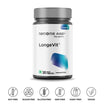
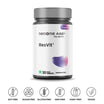
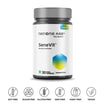
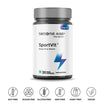
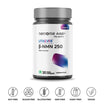
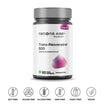
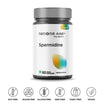
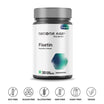
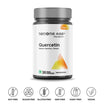
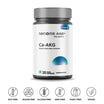
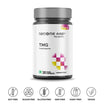
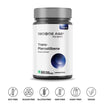
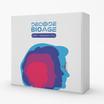
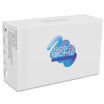
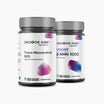
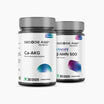
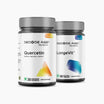
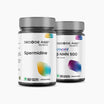
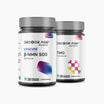
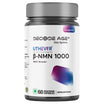
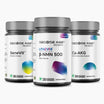
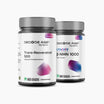
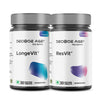
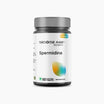
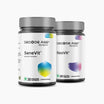
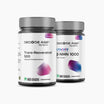
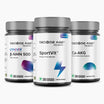
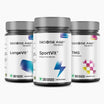
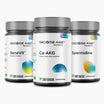
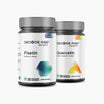
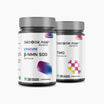
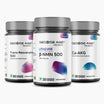
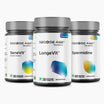
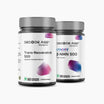




Leave a comment
This site is protected by reCAPTCHA and the Google Privacy Policy and Terms of Service apply.